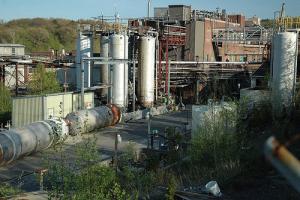
2011 Spring Meeting
Whether getting in or getting out, successful business level transactions are dependent upon an accurate and insightful valuation of the business, its assets, income capabilities, and the business's place in the market.

On Tuesday, Clinton Bogart, VP of the Industrial Valuation and Advisory Services group at CB Richard Ellis, presented the tools and techniques that have brought him and his company to a leadership position in the field. Over the past 15 years, CB Richards Ellis has performed hundreds of valuations in the chemicals, food processing, transport terminal, cold storage, and refining industries.
Three Methods
Each assessment or valuation should have multiple views of the business value.
- Income based: The technique here is to discount and capitalize the net income from the business. An alternate approach is to work with cash flows projected over a 5,7, or 10 year period (depending upon who is doing the appraisal) as the basis for value.
- Capital-cost based: This is an extension of the standard asset value appraisal, determining both fair market and replacement values for all of the land and equipment assets of the business. Value is usually pegged at a mid-range (40-60%) of replacement costs.
- Sales-price (market comparables) based: This common technique is familiar to anyone who has sold a house. Your agent will survey the neighborhood over a recent time span to see what houses of comparable size, age, and quality have sold for. This technique is often problematic in the business world, as the number of transactions similar enough to be of value is very small.
Influencing Factors
Some key influencing factors need to be considered as "adjusting" additions or subtractions to value estimates:

- Some "bricks and sticks" appraisals of physical assets fail to take into account such elements as piping/pipelines, rail access/spurs, harbor access, use agreements, etc. All of these can have a significant effect on the value.
- Is the use so specialized that the value for different buyer types would be less?
- On the other hand, sometimes the combination of land, equipment, and regulatory status can make the business worth more than the sum of its parts.
- Since market comparables are few and often dissimilar, a thorough comparison and factoring of such data points is crucial.
Get All the Facts
The engineering staff at the business itself is sometime not forthcoming with the most insightful information. You can also find that appraisers without significant experience in the businesses' details may miss important valuing influences. Utilizing consulting experts in the various fields is an investment that provides high returns in the accuracy of the valuation.


